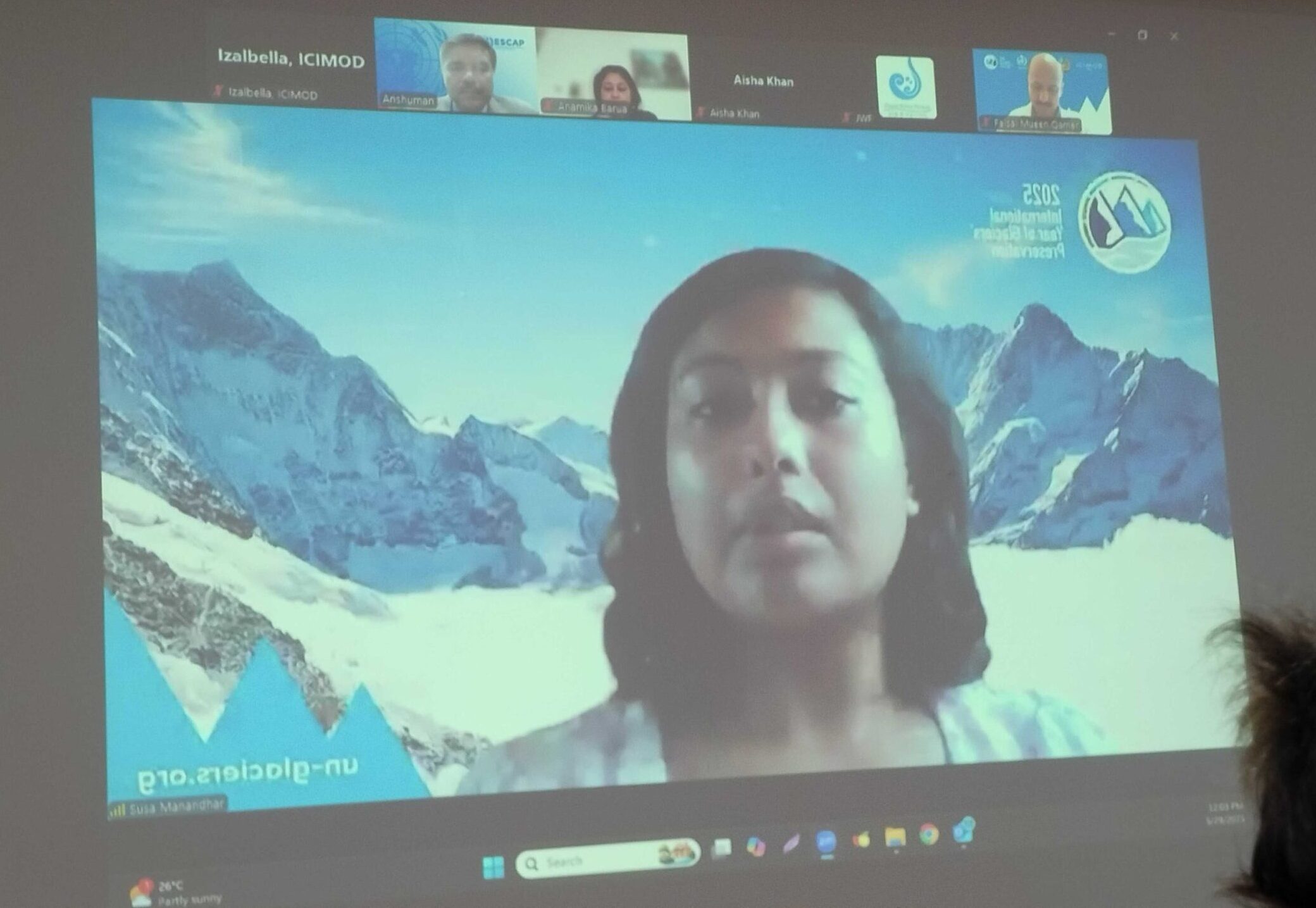On May 03, 2023, an intergenerational dialogue on “Achieving Mountain Water Sustainability through Disaster Resilience Practices in Nepal” was organized by The Small Earth Nepal (SEN), Center for Water Resources Studies (CWRS) at the Institute of Engineering (IoE), Tribhuvan University (TU), Landslide Environmental Virtual Observatories (LEVO), Consortium of Capacity Building (CCB) at University of Colorado – Boulder, UNESCO Nepal, and Fulbright program. The dialogue aimed to establish a forum for information sharing and teamwork to promote water sustainability through practices for disaster resilience in Nepal. The event was participated by 38 individuals, primarily from the student group.
The intergenerational dialogue was moderated by Dr. Vishnu Pandey (Professor, IoE; Deputy Director of CWRS). He welcomed the participants and set the tone for the program, encouraging active engagement and constructive dialogue.
Dr. Dhiraj Pradhananga (Assoc. Professor, TU; President of SEN) highlighted the initiatives
by SEN to mitigate disaster risks. He underscored the vital role of community involvement in building disaster-resilient communities. Dr. Basanta Raj Adhikari (Deputy Executive Director, Center for Disaster Studies), in his presentation, emphasized the large-scale hazards and disaster resilience activities. He highlighted coordination mechanisms and key policies on Disaster Risk Management in Nepal.
Dr. Michael H. Glantz (Director of CCB) highlighted the need for early warning systems and resilience to both onset hazards and creeping problems caused by climate change. His insights serve as important reminders of the need for increased actions to adapt to climate change and help mitigate its effects on vulnerable populations.
Mr. Robert Ross (Project Manager at CCB) emphasized the importance of successful communication among different age groups and overcoming communication barriers for better cooperation. He praised the young generation’s contribution and recognition in tackling climate change and emphasized the importance of effective communication and cooperation in addressing global issues.
The Q&A session made the dialogue quite interesting and interactive. The interactive approach encouraged students to ask and discuss insightful questions on a wide range of disaster-related topics, fostering a dynamic exchange of ideas and furthering their understanding of the subject matter.
Ms. Sijal Pokharel (Natural Science Officer at UNESCO) expressed the need for greater support and motivation for research. She emphasized the importance of inclusiveness and the role of women in science. The program concluded with a closing remark by Dr. Shasidhar Ram Joshi (Dean at IoE) who emphasized the importance of contributing to the development of Nepal and addressing the pressing issues caused by climate change. These discussions among students, researchers, teachers, and experts emphasize the need for cooperation and understanding to achieve water sustainability and disaster resilience in Nepal.






